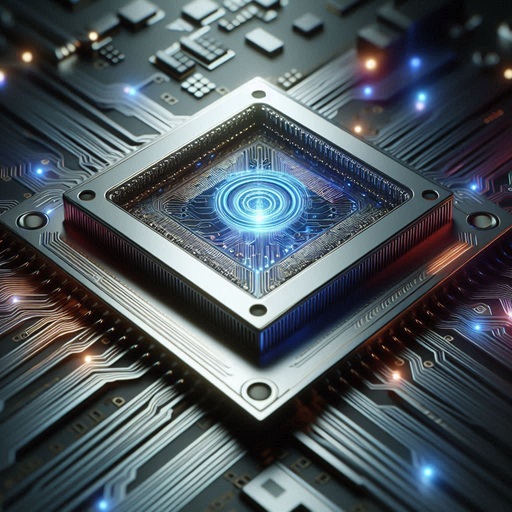The AI processor market is one of the fastest-growing segments in the technology industry, driven by the increasing adoption of artificial intelligence (AI) across various sectors. AI processors, specialized hardware designed to accelerate AI workloads, are at the heart of this transformation. From data centers to edge devices, AI processors are enabling faster, more efficient, and scalable AI applications. This article provides a comprehensive analysis of the AI processor market, including its current state, key drivers, challenges, trends, and future outlook.
An AI processor is a specialized hardware component designed to handle AI-specific tasks such as machine learning (ML), deep learning (DL), and neural network processing. Unlike traditional CPUs, AI processors are optimized for parallel processing and can perform complex computations at high speeds. They are used in a wide range of applications, including autonomous vehicles, smartphones, healthcare devices, and data centers.
Market Overview
The global AI processor market is projected to grow from USD 123.16 billion in 2024 to USD 311.58 billion by 2029, registering a CAGR of 20.4% during the forecast period.
The market expansion is driven by the increasing adoption of AI servers by hyperscalers and the rising use of Generative AI technologies and applications, such as GenAI and AIoT, across industries including BFSI, healthcare, retail & e-commerce, and media & entertainment.
AI processors enable high-speed parallel processing in AI servers, delivering high performance and efficient AI workload management in cloud data centers. Additionally, the growing adoption of edge AI computing and the increasing emphasis on real-time data processing, along with strong government-led investments in AI infrastructure, particularly in the Asia Pacific region, further drive the growth of the AI processor industry.
Download PDF Brochure @ https://www.marketsandmarkets.com/pdfdownloadNew.asp?id=237558655
Key Market Segments
- By Type:
- Central Processing Units (CPUs)
- Graphics Processing Units (GPUs)
- Field-Programmable Gate Arrays (FPGAs)
- Application-Specific Integrated Circuits (ASICs)
- Others
- By Application:
- Data Centers
- Automotive
- Healthcare
- Consumer Electronics
- Robotics
- Others
- By Region:
- North America
- Europe
- Asia-Pacific
- Latin America
- Middle East & Africa
Key Drivers of the AI Processor Market
- Rising Demand for AI-Powered Devices:
The proliferation of AI-powered devices such as smartphones, smart speakers, and wearables is driving the demand for AI processors. These devices require efficient and low-power processors to handle AI workloads. - Growth of Data Centers:
The increasing adoption of cloud computing and big data analytics has led to the expansion of data centers. AI processors are essential for optimizing data center operations and reducing energy consumption. - Advancements in Autonomous Vehicles:
Autonomous vehicles rely heavily on AI processors for real-time data processing and decision-making. The growing interest in self-driving cars is boosting the demand for high-performance AI processors. - Healthcare Innovations:
AI processors are playing a crucial role in healthcare by enabling advanced diagnostics, personalized medicine, and robotic surgeries. - Government Initiatives and Investments:
Governments worldwide are investing in AI research and development, creating a favorable environment for the growth of the AI processor market.
Challenges in the AI Processor Market
- High Development Costs:
Designing and manufacturing AI processors require significant investment in research and development, which can be a barrier for smaller companies. - Complexity of AI Workloads:
AI workloads are becoming increasingly complex, requiring processors with higher computational power and efficiency. - Energy Consumption:
AI processors consume a significant amount of energy, which can lead to higher operational costs and environmental concerns. - Lack of Skilled Professionals:
The shortage of skilled professionals in AI and hardware design is a major challenge for the industry.
Trends Shaping the AI Processor Market
- Edge AI Processors:
The demand for edge AI processors is growing as more devices require real-time processing capabilities. Edge AI processors enable faster decision-making and reduce latency. - Quantum Computing:
Quantum computing is expected to revolutionize the AI processor market by offering unprecedented computational power. - Neuromorphic Computing:
Neuromorphic computing, which mimics the human brain’s neural structure, is gaining traction as a next-generation AI processor technology. - Custom AI Chips:
Companies are increasingly developing custom AI chips tailored to specific applications, such as autonomous vehicles and data centers. - Sustainability Initiatives:
Manufacturers are focusing on developing energy-efficient AI processors to address environmental concerns.
Competitive Landscape
The AI processor market is highly competitive, with key players investing heavily in research and development to gain a competitive edge. Some of the leading companies in the market include:
- Intel Corporation
- NVIDIA Corporation
- Advanced Micro Devices (AMD)
- Qualcomm Incorporated
- Google LLC
- IBM Corporation
- Apple Inc.
- Samsung Electronics
- Huawei Technologies
- Graphcore
Regional Analysis
- North America:
North America dominates the AI processor market, driven by the presence of major tech companies and high adoption of AI technologies. - Europe:
Europe is witnessing significant growth in the AI processor market, supported by government initiatives and investments in AI research. - Asia-Pacific:
The Asia-Pacific region is expected to grow at the highest CAGR, fueled by the rapid adoption of AI in countries like China, Japan, and India. - Latin America and Middle East & Africa:
These regions are also experiencing growth, albeit at a slower pace, due to increasing awareness and adoption of AI technologies.
The AI processor market is poised for remarkable growth in the coming years, driven by advancements in AI technologies and increasing demand for AI-powered solutions. Key trends such as edge computing, quantum computing, and neuromorphic computing are expected to shape the future of the market. Additionally, the development of energy-efficient and cost-effective AI processors will play a crucial role in expanding the market’s reach.
FAQs
1. What is an AI processor?
An AI processor is a specialized hardware component designed to accelerate AI workloads, such as machine learning and deep learning.
2. What are the key applications of AI processors?
AI processors are used in data centers, autonomous vehicles, healthcare devices, consumer electronics, and robotics.
3. Which region dominates the AI processor market?
North America currently dominates the AI processor market, followed by Europe and Asia-Pacific.
4. What are the challenges in the AI processor market?
Key challenges include high development costs, complexity of AI workloads, energy consumption, and a shortage of skilled professionals.
5. What are the future trends in the AI processor market?
Future trends include edge AI processors, quantum computing, neuromorphic computing, custom AI chips, and sustainability initiatives.
6. Who are the key players in the AI processor market?
Key players include Intel, NVIDIA, AMD, Qualcomm, Google, IBM, Apple, Samsung, Huawei, and Graphcore.

